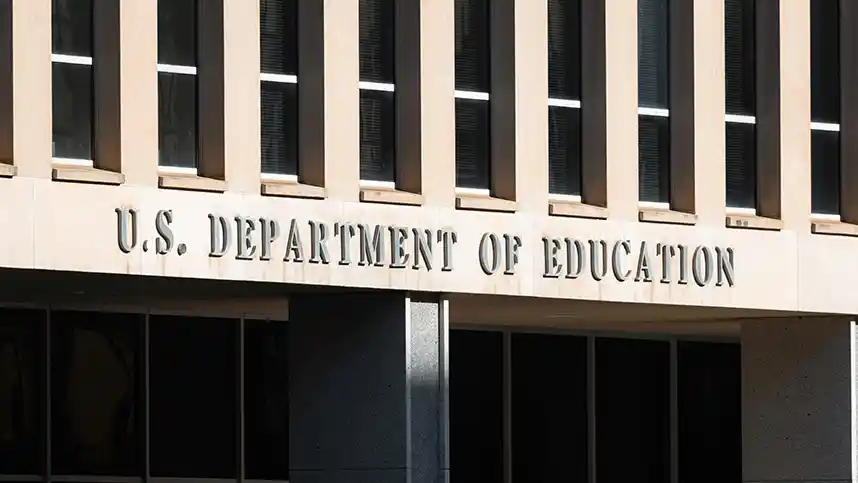On Monday, the U.S. Department of Education announced that it would resume collections on defaulted student loans.
In 2020, during President Donald Trump’s first term, the payments were suspended in response to the COVID-19 epidemic.
In order to provide short-term financial relief during the COVID-19 pandemic, referrals for collections involving student debts in default were halted more than five years ago.
“Beginning May 5, the department will begin involuntary collection through the Treasury Department’s offset program, which withholds payments from the government — including tax refunds, federal salaries and other benefits — from people with past-due debts to the government,” the department said in a statement.
Wages will be garnished following a 30-day warning, it added.
An estimated 5.3 million borrowers are in default on their federal student loans, though the department said that number could reach 10 million in a few months. Repayment will be administered by the Treasury Department, and affected borrowers will get notices in the next two weeks, the department said in a statement.
Natalia Abrams, president of the Student Debt Crisis Center, which argues for government intervention in the mold of past investor, bank and automaker “bailouts,” said the department’s move against defaulters may bypass a federal program, Income-Driven Repayment, under which applications were still being accepted and processed.
“We unequivocally condemn the Department of Education’s decision to resume involuntary collections on May 5th, prior to the processing of both outstanding and new Income-Driven Repayment (IDR) applications,” she said by email. “Resuming collections under these circumstances not only ignores these challenges but actively puts vulnerable borrowers at greater financial risk.”
According to the National Education Association, Trump paused collection on most federal student loans when he signed a stimulus package passed by Congress on March 27, 2020.
The administration of President Joe Biden continued to pause repayment under a campaign promise to relieve student debt, but the U.S. Supreme Court ruled in 2023 his plan unconstitutional because it did not fall under congressional approval.
Biden wanted eligible borrowers to be able to cancel as much as $20,000 in student loan debt at a taxpayer cost of more than $400 billion. Sen. Mitch McConnell, R-Ky., at the time the Senate minority leader, called it “student loan socialism.”
Biden paused federal student loan payments, the accrual of interest and collection for most federal student loan borrowers until that Supreme Court ruling, with the repayment pause officially ending Aug. 30, 2023, according to the NEA.
Today, the Department of Education said, student loan debt has reached $1.6 trillion, and only a little more than a third of borrowers is up-to-date with payments. It said nearly 2 million borrowers were unable to submit federal student loan payments through August 2024 because their paperwork wasn’t being processed.
According to federal data, the total average amount borrowed by four-year college students with federal loans in 2020 was $45,300. Double the percentage of Black and Latino students fall behind on payments, with Black students still owing a vast majority of their loan amounts, on average, 20 years after college, according to the California Department of Financial Protection and Innovation, citing U.S. Federal Reserve data.
U.S. Secretary of Education Linda McMahon said in an opinion piece published in the Wall Street Journal on Monday that the move to collect on loans is a just one for Americans as a whole.
“Borrowers who don’t make payments on time will see their credit scores go down, and in some cases their wages automatically garnished,” she wrote. “Why? … If borrowers don’t pay their debts to the government, taxpayers do.”
This story first appeared on NBCNews.com. More from NBC News: Involuntary collection of defaulted student loans to resume, Education Department says
